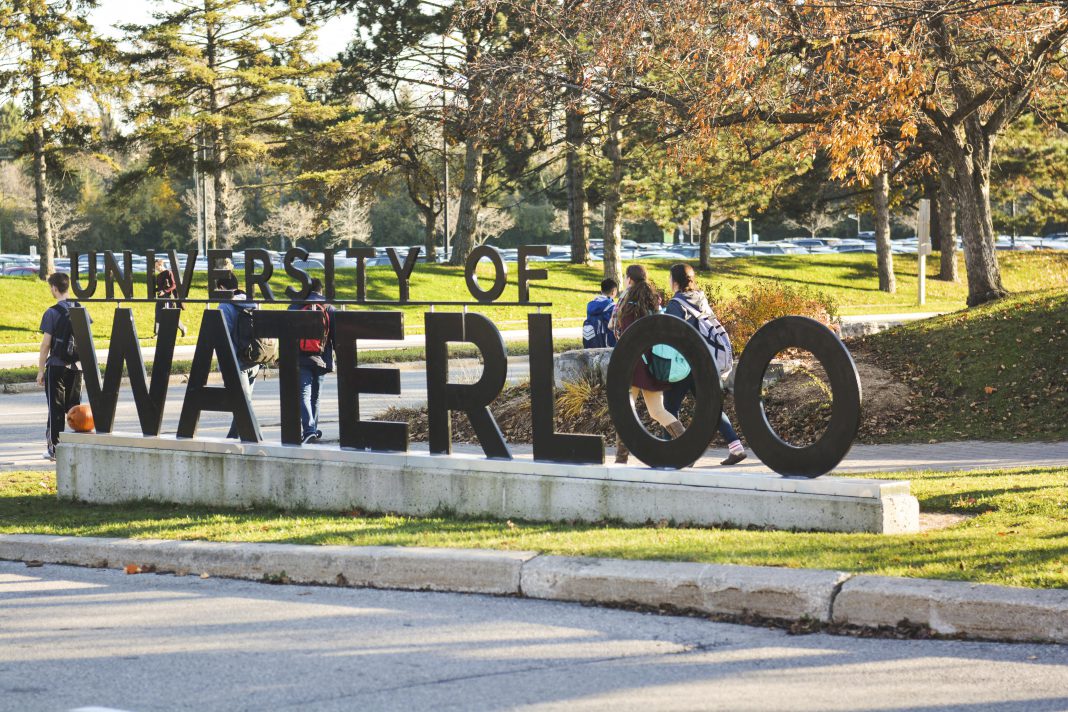After analyzing UW’s Policy 42 at Oct. 25’s Board of Governors meeting, the board decided to accept parts of Policy 42, while rejecting the protocols that accompanied it.
Policy 42, which is titled Prevention and Response to Sexual Violence, was created by the university in response to the Ontario provincial government’s initiative It’s Never Okay: An Action to Stop Sexual Violence. As a result of this initiative, Bill 132’s Sexual Violence and Harassment Action Plan Act was passed March 2016, which made all post-secondary institutions in Ontario create or update their policies that address sexual violence on campus by January 2017.
By going beyond Ontario’s bylaw, the University of Waterloo also included faculty and staff in their sexual violence policy, in addition to students.
“I think that was probably a reasonably good decision to make,” faculty association president Sally Gunz said. Gunz is one of the faculty members that rejected Policy 42’s protocols at the Board of Governors meeting. “Faculty members can be victims of sexual violence just the same as everyone else.”
Due to only having approximately seven months to pass such a policy, Gunz believed that the policy was done in a rush.
“The university took the position that they just wanted these through. They feel the pressure of the timeline. It was not a bad reason, it’s just that the government [of Ontario] imposed a deadline,” Gunz said. “Normally, policies take a long time to get passed here because you have to be really careful to get all the words right.”
Gunz also mentioned that while it may depend on the policy, on average it takes a couple years for the university to pass policies.
As a result of the rushed draft of the proposed policy, the faculty found several conflicts in its accompaniment of protocols and their memorandum of agreement, a formal contract between the university and its faculty.
“Because we knew that there were things in it that conflicted with our memorandum of agreement … and because of the type of policy it is … we said rather than passing something, some of which will not even come into effect because of conflicts, why don’t we wait, [and] do it right?” Gunz said.
The faculty was also only informed that the protocols of Policy 42 were to be approved by the board during the meeting the day before, which also limited time for proper revision.
Gunz explained the nature of the protocols of Policy 42 that the faculty found troublesome to pass during the meeting.
“Some of them were really technical. For example, under the memorandum of agreement, we have a right to bring an academic colleague with us… I can’t remember what the language was in the draft procedures but it didn’t use that language.”
As a result of these concerns, it was decided that these protocols would be redrafted and reviewed Dec. 2 after the annual Board of Governors retreat and therefore implemented by January 2017.
While members of the Board of Governors also had certain issues with Policy 42 itself, it was still approved for January 2017. According to Gunz, this was because the university’s provost and president gave assurance that the policy would still be up for review in the upcoming year.
“We all know that there are things that we don’t particularly think are perfect about it, but they don’t have to be fixed before it’s in place. We can revise it in January,” Gunz said.
Gunz also said that there are advantages for approving the policy now and having to review it in January.
“What I’ve really always been pushing for … is that if the university doesn’t really put the resources into having a really effective policy, then it’s not worth doing it,” Gunz said. “The perfect resolution to this would be that over the next six to eight months, all of that gets hammered out, and you have a really good process in place.”
One element of the policy that Gunz hopes will be reviewed is the fact that it failed to address sexual harassment as a form of sexual violence.
“That was one of the issues we packed for January … this feeling that it’s a continuum and if you say only violence is covered here, people misjudge issues and things fall between the cracks.”
The university currently addresses the issue of sexual harassment under their ethics policy, Policy 33. Gunz hopes that Policy 33 will be redrafted and possibly have parts of it combined with Policy 42 in order to communicate the seriousness of sexual harassment.
Despite having a lot of reviewing to be done over the next several months, Gunz believes that the process will be feasible to create a policy that will satisfy all members of the university.
“I think what all of us who think that these things are important would love to see come out of this is the university really put in the resources to doing this in a bang up way, that protects everyone, everyone’s legal rights, everyone’s needs, and we can all have faith.”






























